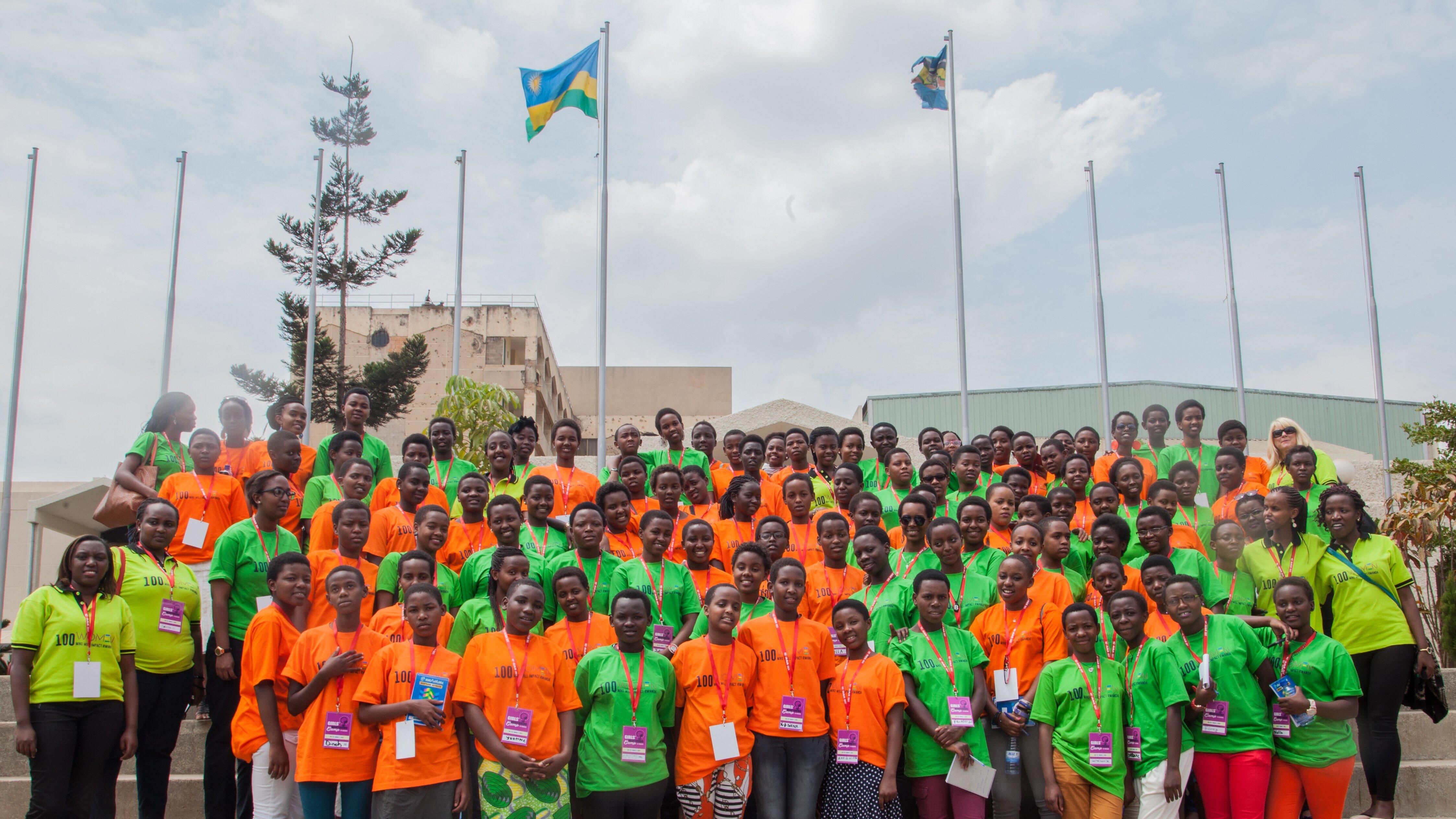“The new development agenda calls on us to leave no one behind. To reach those furthest behind, leaders and communities must focus on and stand up for the human rights of the most marginalized teenage girls, particularly those who are poor, out of school, exploited, or subjected to harmful practices, including child marriage. Marginalized girls are vulnerable to poor reproductive health and more likely to become mothers while still children themselves. They have a right to understand and control their own bodies and shape their own lives.” Dr. Babatunde Osotimehin, UNFPA Executive Director in his statement to mark this year’s World Population Day.
Every teenage girl has the right to a safe and successful transition into adulthood and the right to embrace the opportunities that the future holds for her. UNFPA, the United Nations Population Fund, is committed to promoting and protecting these rights and to supporting teenage girls to determine their own destinies.
This year’s World Population Day theme “Investing in teenage girls,” calls for action to address the enormous challenges faced by teenage girls across the world.
The teenage years are for some girls a time of exploration, learning and increasing autonomy. But for many others, it is a time of increasing vulnerability and exclusion from rights and opportunities, or just plain discrimination.
Teenage girls around the world face more and greater challenges than their male counterparts. In many countries, a girl who reaches puberty is deemed by her family and community as ready for marriage, pregnancy and childbirth. She may be married off and forced to leave school. She may suffer a debilitating condition from delivering a child before her body is ready for it. She may also be denied her human rights.
“When a teenage girl has the power, the means and the information to make her own decisions in life, she is more likely to overcome obstacles that stand between her and a healthy productive future. This empowerment and access to means and information will benefit her, her family and her community” says Mr. Jozef Maeriën, UNFPA Rwanda Representative.
On the other hand, when she has no say in decisions about her education, health, work or even marital status, she may never realize her full potential or become a positive force for transformation in her home, community and nation. Without education, in poor health, and with little or no control over her own body, her future can be derailed, and her potential may never be realized.
Research has shown that the challenges and obstacles faced by a teenage girl multiply if she is a member of an ethnic minority, lives in a village or is from a poor household.
“Governments everywhere and development partners need to invest in teenage girls in ways that empower them to make important life decisions and equip them to one day earn a living, engage in the affairs of their communities and be on an equal footing with their male counterparts. Investments are needed to protect their health, including their sexual and reproductive health, to enable them to receive a quality education and to expand economic opportunities, including those for decent work” Mr. Maeriën calls for action.
According to a UNICEF report, Rwanda has the highest primary school enrolment rates in Africa. For both boys and girls, it is close to have achieved universal access to primary education by 2015. There has been sustained progress in access to education with the primary net enrolment rate increasing to 97 per cent in 2012. Gender parity at primary level has been achieved, with girls’ net enrolment rate of 98 per cent, which is higher than for boys (95%). The overall completion rate at primary level is 73 per cent (2012), which is a dramatic increase from 53 per cent in 2008, with girls’ completion rates at 78 per cent in 2012, and this reflects Rwanda’s success at increasing access and retention of children in primary school.
In spite of the great track record in girls’ enrollment at schools, teenage pregnancies remain a big challenge for the country. In the 2015 Gender-Based Violence (GBV) in Schools report by the Gender Monitoring Office it was revealed that 522 unwanted pregnancies among girls aged 10 to 18 were recorded in schools countrywide.
The success of the new Sustainable Development Agenda will depend on how well governments support and invest in teenage girls among other things. The new 2030 Agenda for Sustainable Development is an unprecedented opportunity for teenage girls to claim their rights, realize their aspirations and transform our world.
“When countries invest in the health and education of their youth, especially teenage girls, and create opportunities for them to realize their full potential, they are also better positioned to realize a demographic dividend, which can propel economic growth to combat poverty” Mr. Maeriën adds.
A demographic dividend is a boost in economic growth that occurs when there is a larger number of people of working age than those below or above working age. Maximizing the dividend depends on the empowerment, education and employment of the people, together with higher savings and investment in productive resources.
What is UNFPA doing?
UNFPA supports countries’ efforts to empower teenage girls by protecting human rights and promoting universal access to information and services, including sexual and reproductive health care. UNFPA also vigorously advocates ending harmful practices, such as child marriage and female genital mutilation.
In 2015, UNFPA programmes helped 11.2 million girls between the ages of 10 and 19 to gain access to sexual and reproductive health services and information worldwide. As of last year, 73 countries had developed or implemented comprehensive sexuality education programmes, which are accessible to teenage girls and boys in and out of school. Also, as of 2015, UNFPA had helped 89 countries develop or implement laws and policies to enable teenage girls to get sexual and reproductive health services, regardless of marital status.


